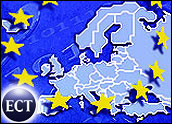
In the latest round of a corporate boxing match that has persisted for more than five years, Microsoft has filed a court brief accusing Sun Microsystems of unfair competition and violation of a previous settlement agreement. The brief is part of an ongoing private antitrust case brought against Microsoft by Sun.
At issue is Microsoft’s freedom to distribute its own version of Java bundled with Windows. Java is a cross-platform programming language that delivers applications to the desktop, sometimes embedded within a Web browser. Sun has claimed that Microsoft’s version of the language is incompatible with Sun’s version, creating problems for users and violating the Java licensing agreement.
Case Background
The ongoing antitrust case is the second suit filed over this issue. The original complaint was brought by Sun in October 1997. Just over three years later, in January 2001, Microsoft settled that case by paying Sun US$20 million.
The second lawsuit, heard by U.S. District Judge J. Frederick Motz, is broader in scope. Sun claims Microsoft is attempting to persuade developers to write programs for the .NET platform instead of Java, but the case also includes complaints that Microsoft has refused to export its Office suite to non-Windows operating systems, and that Microsoft is trying to pressure enterprise customers to use its Exchange and SQL Server products.
On January 21st, Motz issued a preliminary injunction ordering Microsoft to remove its proprietary version of Java and begin distributing Sun’s version with the Windows operating system. That injunction was quickly put on hold by a circuit court in Richmond, Virginia, to which Microsoft appealed. The appeal will be argued by both sides April 3rd.
But Giga Information Group research fellow Rob Enderle told the E-Commerce Times that there is now an inherent contradiction in Sun’s position. By thwarting Microsoft’s ability to distribute Java in the first case, then complaining that Microsoft is not using Java enough in the second case, Sun is on untenable ground, according to Enderle. “Microsoft is in a stronger position,” he said.
Alleged Violations
Microsoft’s new counterclaim accuses Sun of two violations. First, the software giantalleges that Sun’s prosecution goes against California’s Business and Professional Code 17200, which stipulates fair business practices. The code supports litigious action against “unfair, unlawful, or fraudulent practice.”
Microsoft asserts that Sun has brought the antitrust case “willfully anddeliberately with an intent to cause competitive injury to Microsoft and toaid Microsoft’s competitors.” In so doing, according to the brief, Sun is”seeking to relitigate the United States government’s action againstMicrosoft.”
At the same time, Microsoft also is arguing that Sun’s case has breached the 2001Java settlement terms, depriving Microsoft of “quiet enjoyment” of the technologyit licensed under that settlement. According to the software giant, Sun agreed that Microsoft could distribute its own version of the Java Virtual Machine until 2008.
Sun has complained about the method by which Microsoft chose to distribute that technology — the software giant offered Sun’s Java to Windows XP users as an optional download, rather than bundling it with Windows. Microsoft has countered that Sun had no comment on this arrangement when Microsoft first announced it in July 2001, but instead waited eight months before launching its complaint.
No Mincing of Words
True to the acrimonious spirit between these two arch-rivals, the languageof Microsoft’s latest court filing is caustic and contemptuous. The brief refers to”Sun’s technologically inferior Java software” and claims that “Sun [seeks] to obtain a free ride on Microsoft’s success.” Pressing the point with deepening scorn, Microsoft declares, “Sun claims that this success — earned through years of costly research and development — obligates Microsoft to shore up Sun’s business and compensate Sun for its own failures.”
Microsoft also refers to Sun’s complaints as “antitrust epithets.”
Asserting a we-can-do-it-better attitude, Microsoft’s litany of insultsabout Java range from incompatibilities within Sun’s own product to a slamagainst all cross-platform technologies aimed at the lowest common denominator so that they will work with several operating systems. Specifically, Microsoft claims that Java applications run poorly and consume too much memory.
“Microsoft smells blood, because Sun is stumbling,” Yankee Group software analyst Laura DiDio told the E-Commerce Times. However, she added, the two companies are evenly matched on the rhetorical battleground. “Sun has had its pens dipped in acid for longer than Microsoft has.”
Microsoft has not specified an amount it seeks in monetary damages. Thatamount, the company says, should be determined by the court.
























































"Microsoft (Nasdaq: MSFT) has filed a court brief accusing Sun Microsystems (Nasdaq: SUNW) of unfair competition"
.
Hahahah. Hold on, let me catch my breath. Where was I? Oh yeah, Hahahahaha.
.
I think Microsoft needs to take a DEEP look in the mirror before accusing ANYONE of "unfair competition". I don’t see the U.S. Government and nine states, Apple, IBM, Netscape, AOL, Be. Inc., and a plethora of others suing Sun like I do them suing Microsoft.